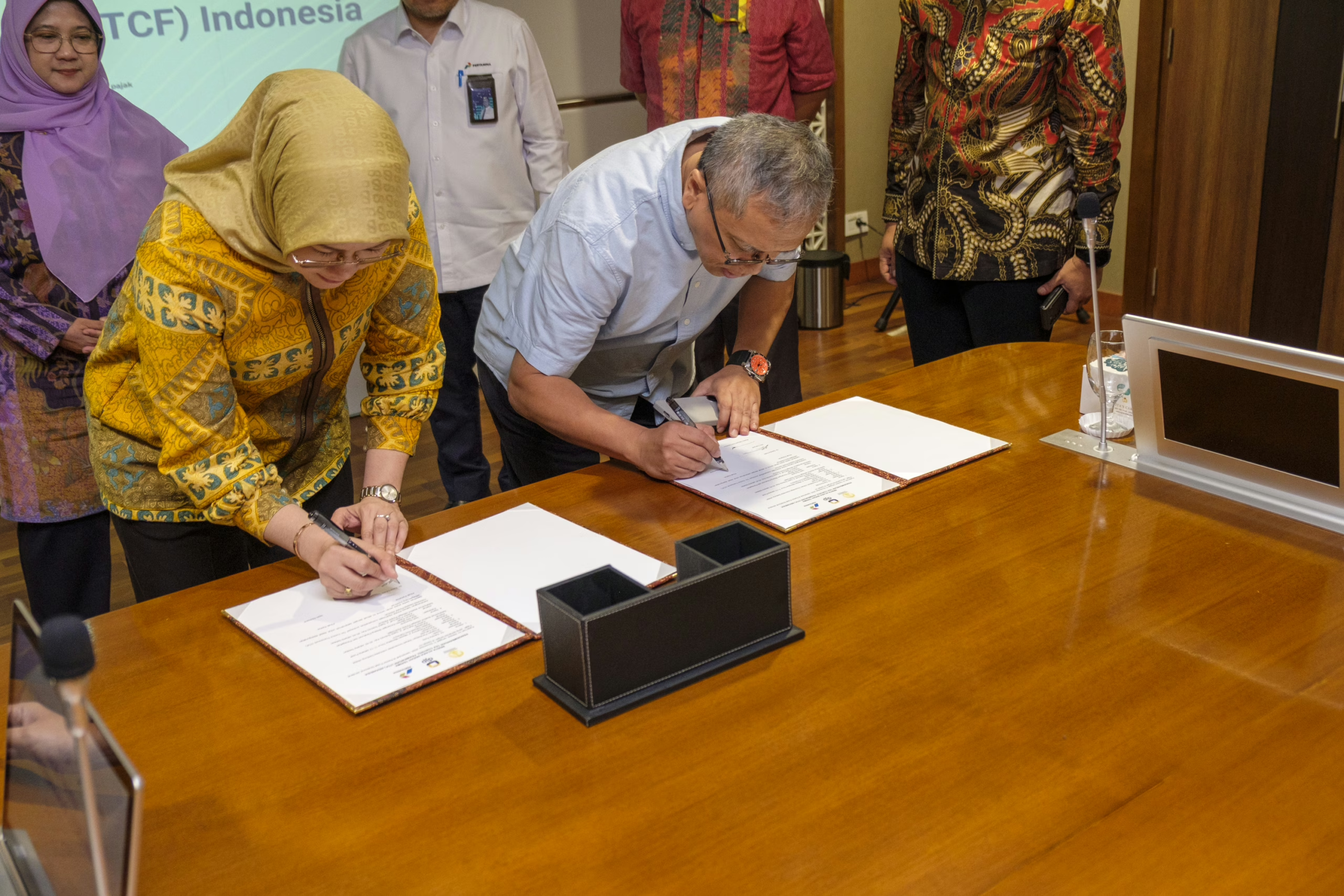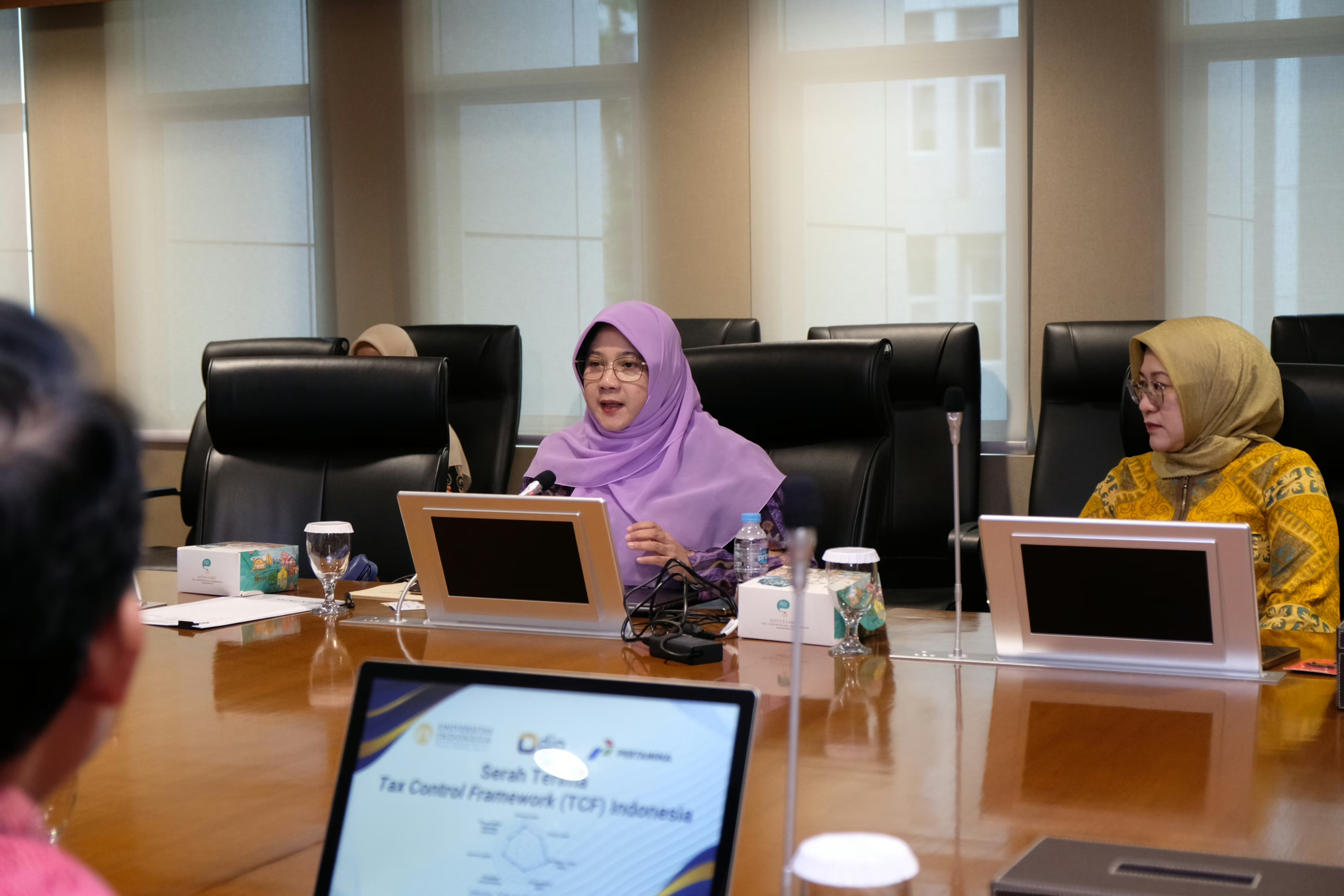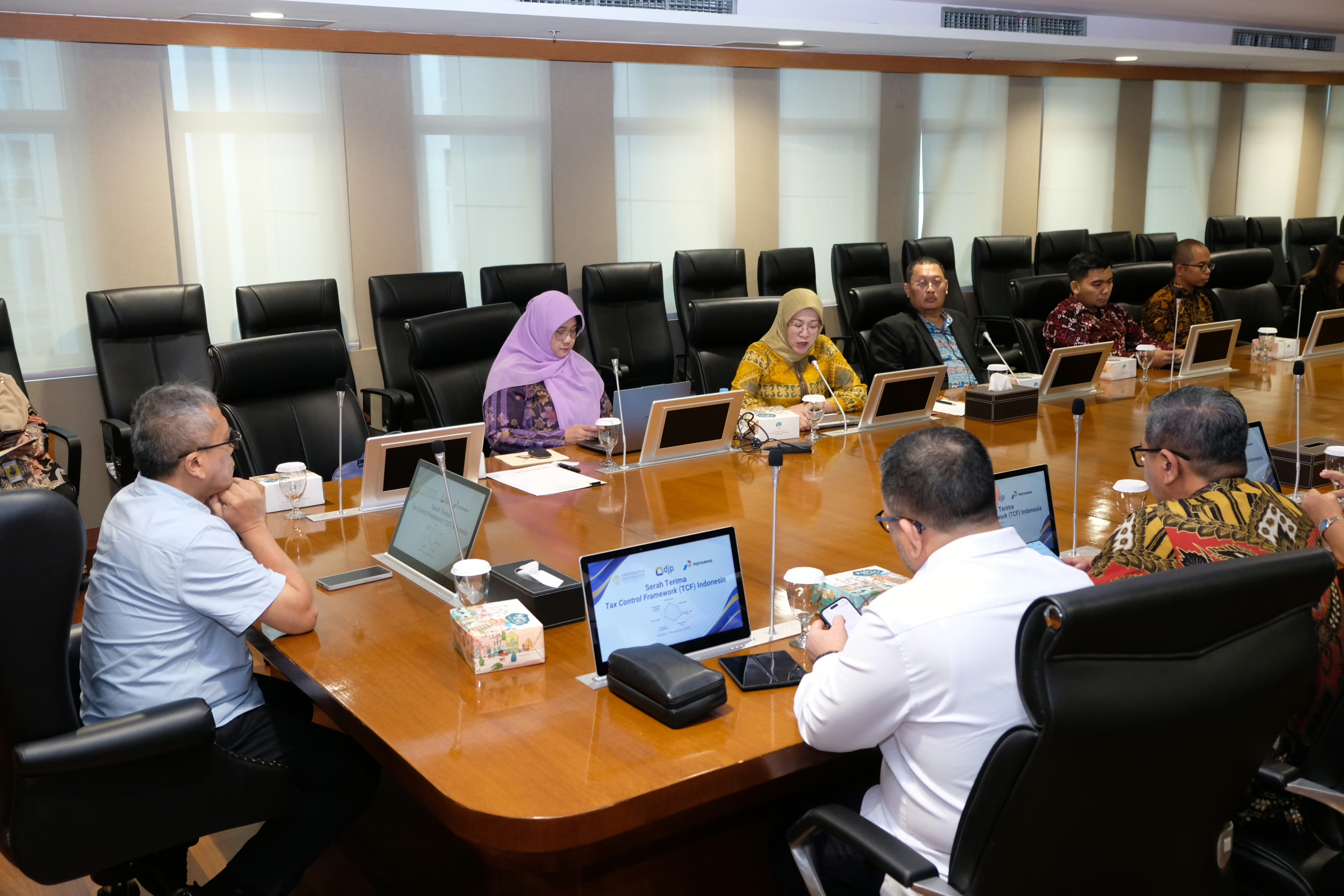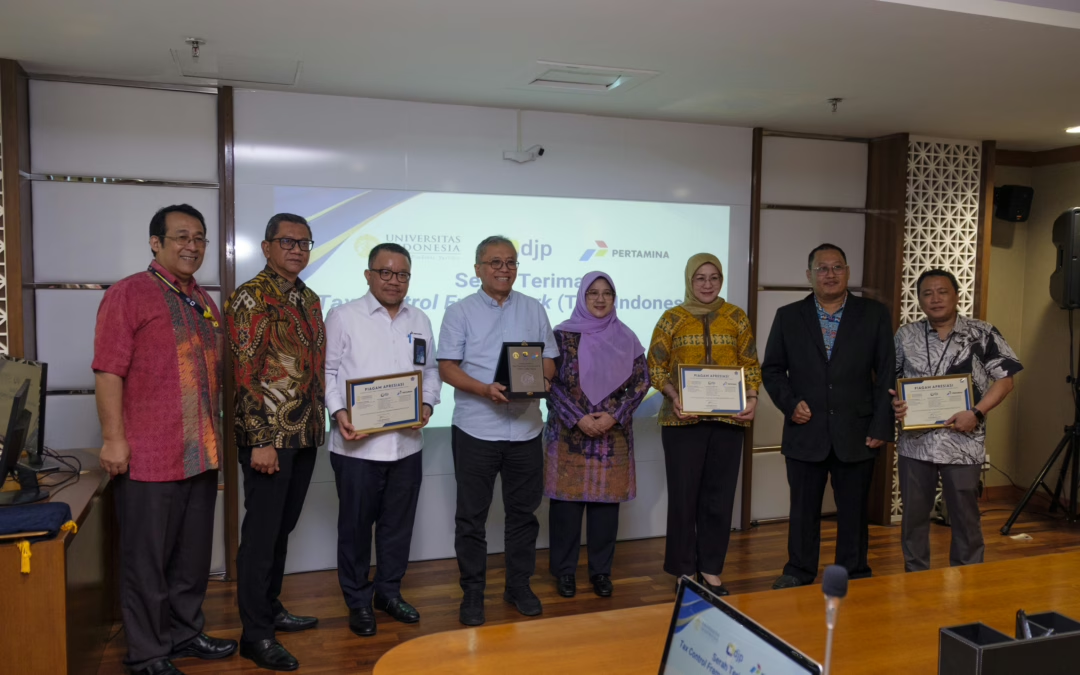Depok-The Universitas Indonesia (UI) is collaborating with the Directorate General of Taxes (DJP) of the Ministry of Finance and PT Pertamina (Persero) to realize transparent and equitable tax governance through collaborative research results in the form of a prototype of the Indonesian Tax Control Framework (TCF) application.
The research results were officially handed over at the DJP headquarters in Jakarta on November 11, 2025, marking a new chapter in the synergy between academics, government, and industry in strengthening transparent and equitable national tax governance.
TCF Indonesia is an integral part of a company’s internal control system, established and implemented to ensure that tax reporting and compliance with tax obligations are accurate, complete, and timely. TCF Indonesia is designed to ensure that tax risks are appropriately managed, reported, and monitored by taxpayers.
Research and development of TCF Indonesia has been conducted from early 2023 to 2025 through a collaboration between the UI, the Directorate of Business Process Transformation of the Directorate General of Taxes (DJP) of the Ministry of Finance, and PT Pertamina (Persero).
 (Photo: Signing of the agreement between UI, DJP, and Pertamina regarding TCF Indonesia)
(Photo: Signing of the agreement between UI, DJP, and Pertamina regarding TCF Indonesia)
Dr. Sandra Aulia, lead researcher from the UI Vocational Education Program, explained that the research involved the initiation and development of concepts developed through literature review and comparative studies in various countries. Then, in 2024, a matching fund creation grant was awarded, resulting in six tax control principles and one principle for controlling information technology related to taxation.
“The total tax control indicators are 45 based on OECD, COSO, and ERM, as well as benchmarking and in-depth discussions with tax authorities, taxpayers, tax consultants, and academics in several countries. Furthermore, the TCF Indonesia application can also assess five levels of tax control maturity,” Sandra explained.
According to him, TCF Indonesia was developed as an integrated internal tax control system based on the principle of cooperative compliance. The main objective of TCF Indonesia is to build trust between tax authorities and taxpayers to create a healthy, sustainable, and impactful tax climate, leading to the realization of Indonesia Emas 2045.
“This framework allows companies to assess the effectiveness of their tax control systems and how tax risks can be managed and mitigated in a measurable manner,” Sandra explained.
TCF Indonesia is an important instrument to ensure that tax risks are well managed and tax controls are effective, so that there are no more tax surprises and sustainable compliance is achieved.
 (Photo: Prof. Dr. Dra. Haula Rosdiana, M.Si., CiRR during the discussion)
(Photo: Prof. Dr. Dra. Haula Rosdiana, M.Si., CiRR during the discussion)
Prof. Dr. Dra. Haula Rosdiana, M.Si., CiRR, in her remarks representing UI, stated that TCF Indonesia embodies a paradigm shift in tax compliance from coercive to collaborative.
“Through synergy between academics, government, and the business world, we build trust as a key pillar of the relationship between tax authorities and taxpayers. TCF Indonesia is not just about control, but also a cycle of knowledge management,” she said.
Iwan Djuniardi, Expert Staff to the Minister of Finance for Tax Regulations and Law Enforcement, expressed his appreciation for the research collaboration. He stated that through TCF Indonesia, the Ministry of Finance’s DJP can systematically manage tax risks through a Total Quality Assurance approach, thereby reducing compliance costs and strengthening legal certainty.
“Going forward, we will develop artificial intelligence (AI)-based data elaboration and integration to strengthen its analytical functions,” Iwan added.
Meanwhile, Dr. Palti Ferdrico T.H. Siahaan from Pertamina assessed that the implementation of internal control principles based on the COSO Framework in TCF Indonesia will strengthen corporate accountability and clarify the role of the tax function in corporate governance.
 (Photo: Atmosphere of the TCF Indonesia application inauguration event)
(Photo: Atmosphere of the TCF Indonesia application inauguration event)
“This approach opens up more transparent communication between the DJP and corporations through a testable and measurable control system,” Palti said.
VP Tax of PT Pertamina (Persero) Eko Cahyadi emphasized that the implementation of TCF Indonesia will strengthen governance practices, integrity, and transparency in the business environment.
“This framework ensures that tax compliance becomes part of an organizational culture based on responsibility and accountability,” he said.
As a leading and impactful university, UI is committed to continuously strengthening the role of applied research in addressing national governance challenges. TCF Indonesia is concrete evidence that UI is taking strategic steps to synergize academia, government, and industry to build a transparent, trustworthy, and equitable tax system.


